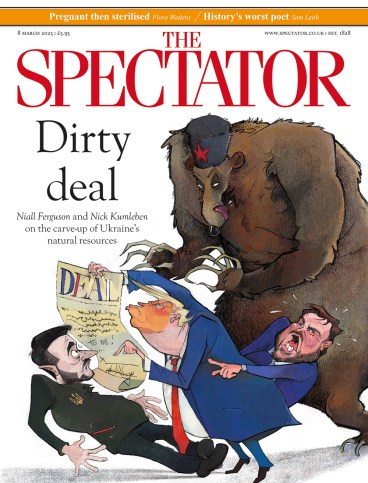
India
A crowded bus station. A lady monkey with a baby clinging to its neck sidled past me, eyeing the banana I was eating. I barely noticed them. A moment later, claws dug into my back. A skeletal hand darted forward to grab my banana. The baby monkey was on my shoulder. I leapt up and shrugged vigorously but it climbed on to my head, so I twisted sharply this way and that to unseat the little nuisance. I felt a painful scratch on my neck. The furry bundle leapt off me and scampered away. I’d been bitten.
A few bored locals gathered around to see if the kerfuffle was worth getting overexcited about. A samosa seller helpfully dabbed my neck with a rag soaked in oil from his smoking cauldron. I thanked him diplomatically for this pointless gesture.
The crowd retreated. I touched the wound. There was fresh blood on my fingers. The fangs of a wild mammal had breached my skin. I knew what this meant. Saliva from the rabid monkey’s teeth had entered my system already. Toxic microbes were swimming through my veins, attacking my blood cells, spreading deadly infection, swarming towards my vital organs, which would collapse, one by one. First my kidneys, then my heart, finally my brain.
The fear of rabies was a vivid and perennial source of panic when I was growing up. It was rife across Europe and Asia, but Britain was a haven of safety. Every point of entry to the UK was blazoned with lurid posters warning incomers not to smuggle infected mammals across our undefiled borders. The BBC ran a public information film showing a victim in the last throes of the disease. He lay on a hospital bed, mired in sweat, howling and thrashing, grinding his foam-flecked jaws as a team of hooded orderlies tiptoed towards him with rubber coshes and a straitjacket. He was lucky. He died in the care of the NHS. I was about to suffer the same fate in a hippie lodge in Rajasthan.
I hoped the doctor would laugh and offer me a plaster. ‘Danger?’ I asked. ‘Grave danger,’ he said
My only hope was the serum. I walked to a clinic where I was examined by a Sikh doctor whose air of solemnity and professionalism impressed me greatly. I hoped that he would laugh at my fears and offer me a plaster and a painkiller. ‘Danger?’ I asked.
‘Grave danger,’ he said. He scribbled a note on a chit of paper and sent me to the ward for immediate treatment. The antidote, like the disease itself, enjoyed a dramatic and colourful reputation: 14 doses of serum injected into the stomach lining.
I removed my T-shirt and the uniformed nurse produced a fat syringe filled with yellowish fluid. I braced myself as the steel talon sank into my flesh. Slowly, she depressed theplunger and emptied the serum into my midriff where it gathered in a large, taut swelling. I touched it. No sensation. The lump was the size of a hen’s egg. As I left the hospital, I checked to see if the serum had dispersed and settled into my system. It hadn’t budged but sat there, pebble-hard. Discreetly I scraped some saliva from my tongue and checked for white flecks. Nothing. Phew. I hadn’t started foaming at the mouth.
Back at the hippie lodge, my dorm mates weren’t remotely interest in my brush with a rabid monkey. But I noticed I suddenly had the double-bunk all to myself. My appetite had disappeared, and I declined the chillum filled with bhang, or hash, that was passed from hand to hand. Nor did I join the others for supper at the local chapati house.
I became a minor tourist attraction. Visitors to the hippie lodge inspected my bumpy stomach and took photos
I sat in my cot, awaiting the onset of fever, delirium and death. Already the first symptom had appeared. Hydrophobia. My throat was parched and yet the thought of liquid made me retch. On the dresser sat a water jug which I tried not to glance at. The more I looked away, the more my eyes were drawn towards it. With rising panic, I crossed the room and held it in my trembling hands. The smooth flanks were cool to the touch. I raised it to my mouth, expecting a gag reflex, and then I turned. One of the backpackers had walked in. A chubby Australian blonde. ‘You haven’t got hydrophobia,’ she said. ‘They just wanted your money for the antidote. You’re imagining things.’ She was right, of course. Comforted by her advice, I retreated to my cot where I fell into a deep and restful sleep.
For the next 13 days, I commuted to the hospital for my morning injection. I became a minor tourist attraction. Visitors to the hippie lodge inspected my bumpy stomach and took photos. The circle of taut swellings looked like a henge of alien birth-pods planted by some monstrous life form that was eating my guts and preparing to burst free.
On the 14th day, I received the final jab and returned to the bus station to leave. Where was the monkey? Part of me wanted to find its flea-ridden corpse being torn apart by wild dogs. But no, there it was, scampering among the crowds, looking for food to pilfer. I fled. Much later, under cover of nightfall, I escaped.









Comments